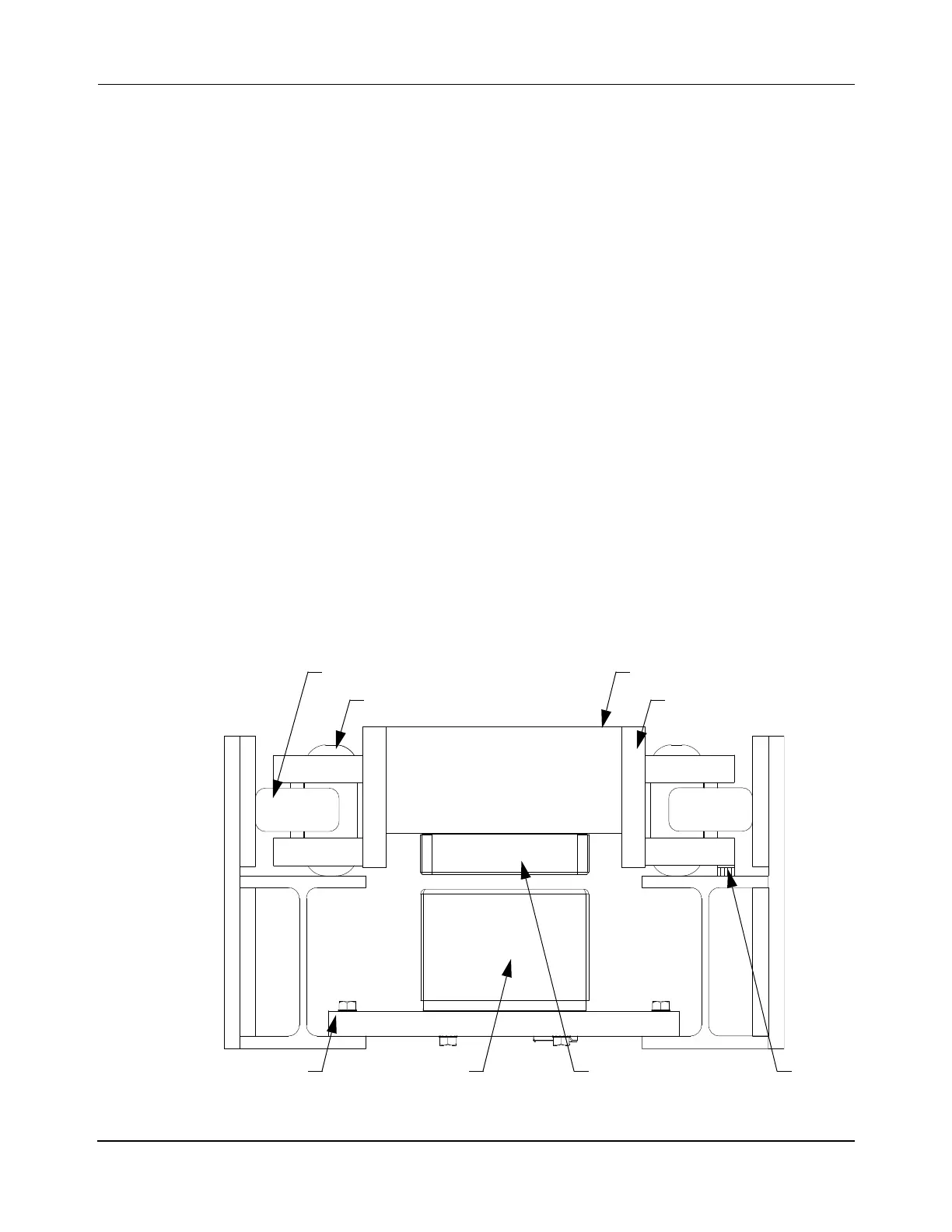Design Guidelines
Transport System Design
106 MagneMotion
Rockwell Automation Publication MMI-UM007F-EN-P - September 2020
Vehicles
Vehicles carry payloads through the QSHT transport system as directed. A high-strength mag-
net array, described in Magnet Arrays on page 102, is mounted to the surface of the vehicle
closest to the motors. The magnet array interacts with the motors, which moves the vehicle.
The vehicle is passive with no electronics on the vehicle and no power or signal connections
required. A vehicle can be of almost any size and shape, depending on the requirements of the
application. Vehicles must be designed to hold the mass of the payload, to hold the magnet
array, and to withstand the attractive force present between the magnet array and the top of the
QuickStick HT motor. There are several design elements that must be met:
• The vehicle supports the magnet array and its placement in the guideway must make
sure that the Vehicle Gap, see Figure 3-33, is maintained throughout the system.
• The vehicle design must provide guides to make sure that the magnet array position is
maintained over the center of the motor as shown in Figure 3-33.
• The vehicle platform must be at least as long, and preferably longer than the magnet
array.
• Vehicles must be grounded to the guideway through conductive materials such as
wheels, skids, or static brushes.
• The vehicle must have low friction with the guideway.
• All vehicles on connected guideways must be the same size and use the same size and
type of magnet array.
Figure 3-31: Typical Vehicle on Guideway
QSHT Motor
Vehicle Suspension Wheels
Vehicle
Magnet Array
Payload Mounting Surface
Motor Mount
Vehicle Guidance Wheels
Static
Brush

